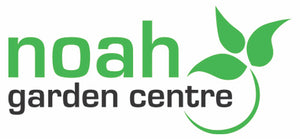What is Diatomaceous Earth?
Diatomaceous earth often referred to as DE is a soft sedimentary rock that comes from the fossilized remains of diatoms, a type of hard-shelled algae that lived in bodies of water millions of years ago.
Over time, their skeletons settled on the bottom of these bodies of water and formed thick deposits. These deposits are mined and processed into a fine, white powder known as diatomaceous earth.
Food-Grade Diatomaceous Earth
One of the most popular and well-known forms of DE is food-grade diatomaceous earth. It is a popular choice for gardeners and farmers due to its effectiveness in pest control and soil improvement:
- Pest Control: DE can be sprinkled directly onto the soil or mixed with water and sprayed onto leaves which will dry into a fine powder on the leaves. When pest insects come in contact with the DE, the insects’ exoskeleton will be damaged and cause the insect to dehydrate and die.
- Pest prevention: In gardens, DE can be used to protect plants from crawling insects. When sprinkled on the soil or plant surfaces, it creates a barrier that insects cannot easily cross
- Soil Amendment: DE is rich in silica, which is beneficial for plant health. Adding it to the soil can help improve soil structure, increase water retention, and enhance nutrient absorption by plants.
- Natural Fertilizer: Some gardeners use DE as a component in organic fertilizers to enhance the nutrient content and improve the overall health of their plants.
Safety and Precautions
While diatomaceous earth is generally considered safe, there are a few precautions to keep in mind:
- Dust Inhalation: DE can be harmful if inhaled in large quantities, as it can dry out the respiratory tract. When using DE, especially in powdered form, wear a mask to avoid inhaling dust.
- Skin and Eye Protection: To prevent irritation, it's advisable to wear gloves and safety goggles when handling DE directly.
- Food-Grade vs. Pool-Grade: Make sure you're using the correct type of DE for your intended purpose. Pool-grade DE, which is used for pool filtration, is not safe for consumption.
- Targeting pests: When using DE on plants especially flowering plants, avoid getting it on the flowers as it may kill helpful pollinators which are beneficial to your plant’s health or fruit yield.
Diatomaceous earth is a versatile and natural product that has numerous applications, from health and beauty to gardening and pest control.
It is a valuable tool for those seeking environmentally conscious solutions, revered for its eco-friendly nature and non-toxic properties which makes it safe to use around pets and children. Whether you're tending to your garden, detoxifying your body, or battling pests, DE might be the answer you've been looking for.
Be sure to also view our video below about it!


